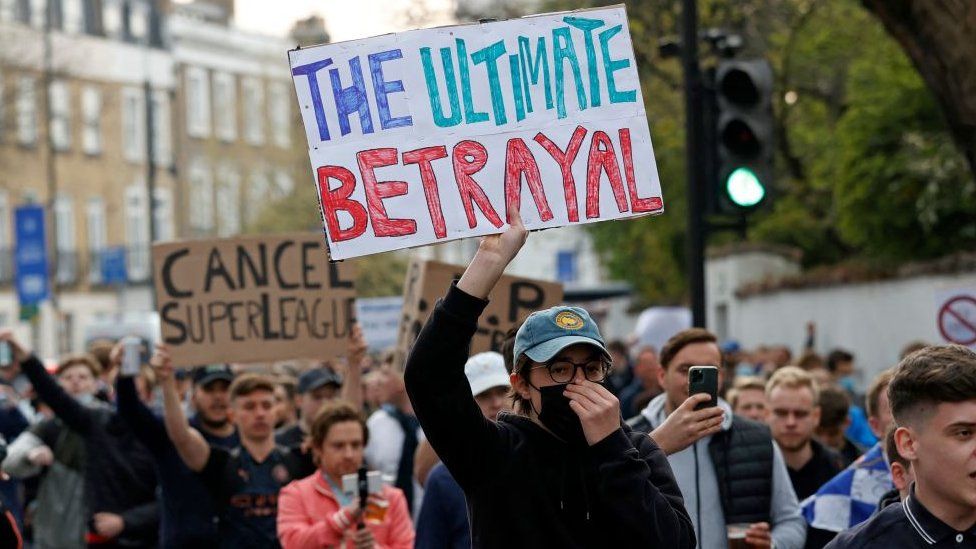Over the last two decades, European soccer has become an international sensation capturing the attention of roughly four billion people worldwide. These highly elite teams draw their players from western Europe, Africa, South America, and plenty of other regions. People will pay hundreds of dollars to see these games and broadcasters will pay millions to earn the right to show their games. European soccer draws its viewers all over the globe and has positively influenced sports culture in the western world.
Like all elite sports leagues, they are also a business. A few weeks ago on the 18th of April, it was announced that the top 12 European clubs would break away from The Union of European Football Associations (UEFA) and form the “Super League.” They are the founding clubs with permanent membership. The Super League would have completely altered how European soccer functions. The proposal involved the clubs forming their own competition to rival the UEFA Championship league. The clubs that were in the Super League are three from Spain: Barcelona, Real Madrid, and Atlético Madrid. From England: Arsenal, Chelsea, Manchester United, Manchester City, Liverpool, and Tottenham. Last from Italy: Juventus, A.C. Milan, and Inter Milan. Later three more clubs would have permanently joined the league. Annually, additional clubs would enter the league based on their achievements in the prior season. In total there would be 20 teams. JP Morgan, the United States investment bank is providing the initial fund of four billion dollars for the league. The clubs claim they are doing this because they have been hit hard because of the COVID pandemic in terms of money. They also want to improve the quality and intensity of European soccer competitions. The Super League was intended to fill up the midweek calendar slots by the Champions League which might have prevented the teams from competing in both leagues.
For the next few days, Europe was in chaos. This change in sports culture caught the attention of politicians, fans, and players around the world. Clubs from Germany and France did not join the Super League and voiced their opposition from the break. The same day that the Super League was announced, the UEFA on social media voiced their opposition and feeling of betrayal. The Prime Minister of the UK, Boris Johnson voice his opposition and stated if the Super League were to go through with their plans, he would draw up legislation to prevent them. Prince William of the Royal family stated that he did not like the direction European soccer was taking. Later in the week, Amazon put out a statement refusing to broadcast the Super League games. The players themselves did not like what was going on. In the next few days across Europe, fans took to the streets protesting, putting signs up around soccer stadiums, and graffitiing the properties. During some games, fans blocked the players from coming off the buses and said that they want to talk to their executives. Many players, presidents, executives, and politicians used social media to voice their problems with the league. The main problem was the league’s greediness and exclusivity. The Super League received enormous backlash and the players themselves didn’t want to be a part of it. By Thursday the 22nd of April, all but three clubs had resigned from the league: Barcelona, Real Madrid, and Juventus F.C. The Super League is finished because it can not go on with only three clubs. This warranted a sigh of relief for most people around the world. However, this event has changed the perspective on European soccer and might influence how things operate in the future.




More Stories
Howard County Outdoor Track & Field Championships
Tennis Team Poised to Take County Championship
Resi Soccer Recap